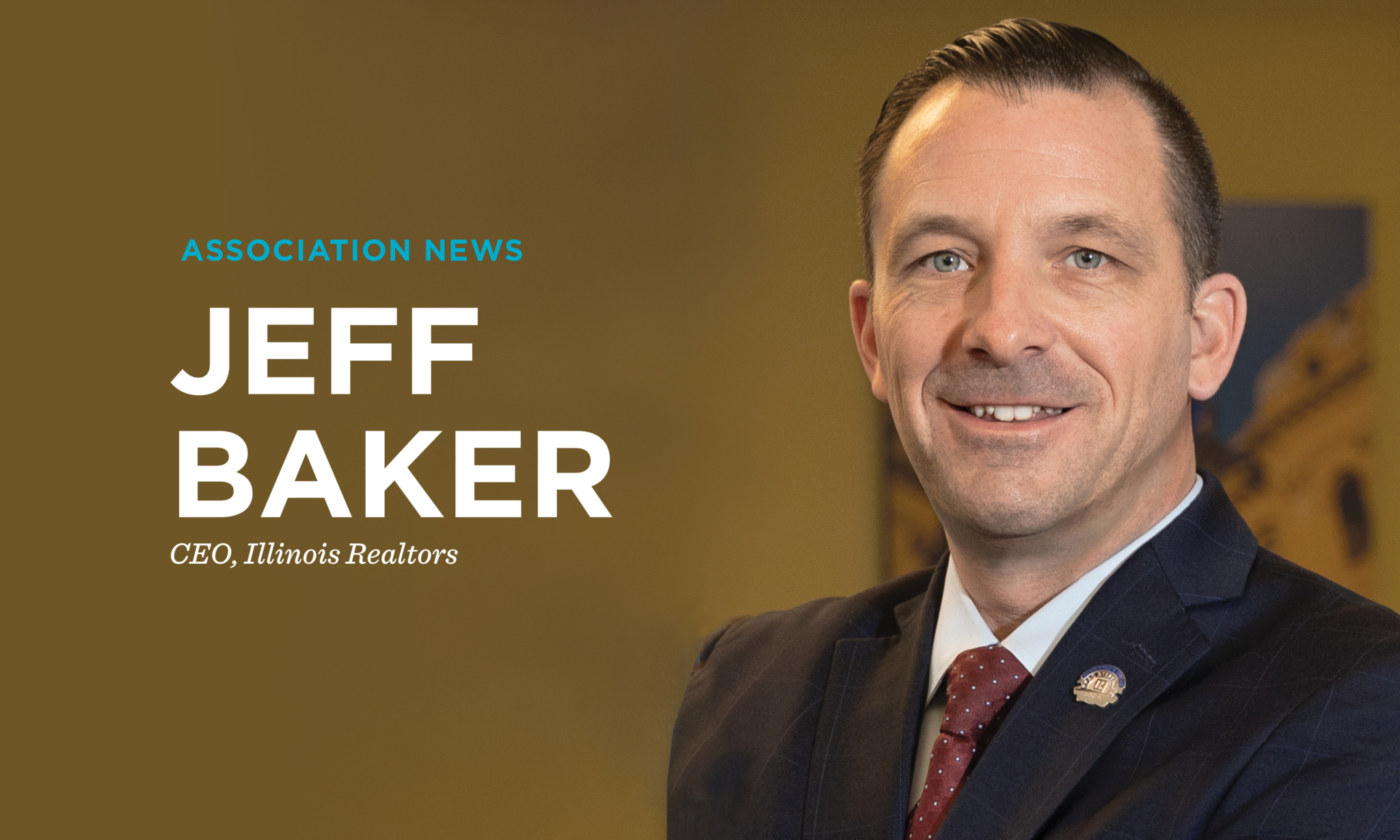
By Jeff Baker
Housing availability, fairness and equitability. Sounds obvious. But it’s been hard to achieve.
Three months ago, Illinois Realtors built on our long-standing commitment to these values by launching a diversity and inclusion program. The initiative’s fundamental concepts are our recommitment to advancing more housing opportunity, affordability and equality. However, without action soon by policymakers, the state’s historic housing inventory shortage poses a unique obstacle to achieving our goals.
The state’s housing market saw record-breaking numbers throughout the second half of 2020, but complaints of low inventory were seen and heard nationwide. In Illinois, housing inventory was low long before COVID-19 entered our lives. Affordable housing had reached crisis levels many years ago.
There are multiple causes for these shortages, not the least of which are the unwillingness of elected leaders to prioritize integrative housing policies and the growing appetite of municipalities to balance their budgets with higher property taxes and fee increases on developers.
The regressive impact of state and local pandemic mitigation measures is just the newest factor amplifying the state’s housing crisis. Federal stimulus measures have been helpful for many Illinois families, but continued restrictions mean the pandemic recovery is K-shaped — driving those with less, into deeper financial peril and worsening the affordability crisis simultaneously. Without addressing the need for more housing, these steps by city and state leaders are fueling the higher demand we are all seeing in the market, especially from buyers transitioning from urban to suburban communities.
The Illinois General Assembly returned to Springfield in January for the lame-duck session, but legislators were unwilling to take up a bill that Illinois Realtors helped draft that would have created incentives for the construction of new affordable housing units. Locally, Cook County and the city of Chicago are considering proposals to increase rent regulations advanced in the name of tenant protection. But these proposals have been proven to be anti-tenant, worsening the quality and supply of rental housing stock, and hindering investment in communities already suffering from the discriminatory impact of city policies.
More equitable and fair housing will be achieved when local and state officials in Illinois finally prioritize the need for more housing. Barriers to creating new affordable housing must be removed or reduced and local development policies that perpetuate historic resegregation and discrimination must be eliminated. By implementing integrative housing policies that attract rather than repel investment, while also increasing enforcement of anti-discrimination measures in lending and appraisals, we can start the process of revitalizing neighborhoods and truly giving everyone the opportunity to realize not only the benefits of homeownership but also housing stability.
The current shortage of available housing inventory is often treated as a nuisance for the thousands of potential homebuyers and the brokers assisting them in the market. But it is the long-term public policies that have created a shortage that has only worsened by the pandemic and, if not addressed completely, will stand in the way of our industry creating more housing affordability, opportunity and equality.
Jeff Baker is the CEO of Illinois Realtors.